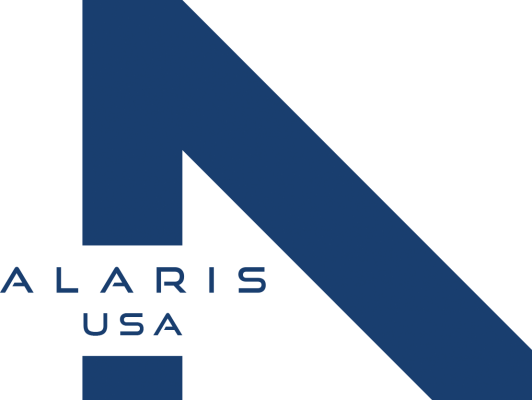VIP Panel 1: Towards an Affordable, Secure and Resilient Tactical Network
Date: Tuesday, November 29
Time: 10:45 - 11:45
Room: Grand Ballroom D & E/Main Level
Moderator:
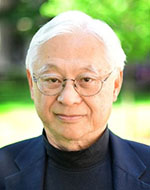
Dr. Vincent Chan
Joan and Irwin Jacobs Chair Professor, Claude E. Shannon Communications and Network Group, Research Laboratory of Electronics, Department of Electrical Engineering and Computer Science, AI and Decisions System Sector Schwarzman College of Computing, MIT
View Dr. Vincent Chan's Biography
Vincent Chan received his BS/MS/EE/PhD from MIT (1971-1974.) He was the Head of the Communications and Information Technology Division of the MIT Lincoln Laboratory (now Cyber and Communications Divisions), and Director of the Laboratory for Information and Decision Systems. He initiated the US’s Laser Intersatellite Transmission Experiment Program and the follow-on GeoLITE Program in 1980-1989. He was the first to use “Dual-Use Technology Investment” by the Clinton Administration to form and chaired: the All-Optical-Network Consortium among MIT/AT&T/DEC, the Next Generation Internet Consortium, ONRAMP among MIT/AT&T/Cabletron/Nortel/JDS, and a Satellite Networking Consortium formed among MIT/Motorola/Teledesic/Globalstar. His research focus is on communications and network architectures, intelligent network management and control and security. He chaired many advisory committees including the Defense Science Board Taskforce on Communications and Networks and DHS’s Science and Technology Advisory Board, a member of the DNI’s Intelligence Science Board and has been active with start-ups, a Board Member of a Fortune-500 network company, and a Member of the Corporation of Draper Laboratory.
Panelists:
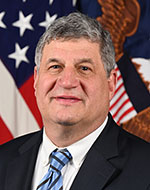
Dr. William LaPlante
Under Secretary of Defense for Acquisition and Sustainment (USD(A&S))
View Dr. William LaPlante's Biography
Senate-confirmed in April 2022, the Honorable Dr. William A. LaPlante serves as the Under Secretary of Defense for Acquisition and Sustainment (USD(A&S)). In this role, he is responsible to the Secretary of Defense for all matters pertaining to acquisition; contract administration; logistics and materiel readiness; installations and environment; operational energy; nuclear, chemical, and biological defense; the acquisition workforce; and the defense industrial base.
Prior to this appointment, Dr. LaPlante served as President and Chief Executive Officer of Draper Laboratory, a research and development company specializing in advanced technology solutions in national security, space exploration, health care, and energy. Previously, he was senior vice president and general manager at MITRE National Security, where he oversaw the operation of two federally funded research and development centers and the U.S. Department of Commerce’s National Institute of Standards and Technology.
Dr. LaPlante served as the Senate-confirmed Assistant Secretary of the Air Force for Acquisition, Technology, and Logistics from 2014 to 2017, where he aligned that Service’s $43 billion acquisition enterprise budget with the Air Force vision and strategy. During his tenure, he forged a path forward on critical Air Force acquisition programs such as the B-21 long range strike bomber, while realizing nearly $6 billion in “should-cost” savings in other programs. Prior to this position, Dr. LaPlante spent 26 years at Johns Hopkins University Applied Physics Laboratory (APL), ultimately leading the Global Engagement Department where he was responsible for all of APL’s work supporting offensive strike military capabilities. He also served as a member of the APL’s Executive Council.
Dr. LaPlante has been a member of several scientific boards and commissions focused on maintaining national security, including the U.S. Strategic Command Senior Advisory Group, Naval Research Advisory Committee, and Defense Science Board. He joined other national experts as a commissioner on the congressionally-mandated Section 809 Panel, which performed a comprehensive review of Department of Defense acquisition policies and provided improvement recommendations, many of which became law.
Dr. LaPlante holds a doctorate in mechanical engineering from the Catholic University of America, a master’s degree in applied physics from The Johns Hopkins University, and a bachelor’s degree in engineering physics from the University of Illinois.
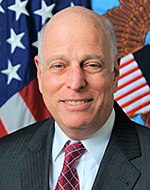
Dr. David A. Honey
Deputy Under Secretary of Defense for Research and Engineering (DUSD(R&E))
View Dr. David A. Honey's Biography
Dr. David A. Honey is the Deputy Under Secretary of Defense for Research and Engineering (DUSD(R&E)). In this role, he assists the Under Secretary and Chief Technology Officer in managing research, development, and prototyping activities across the Department of Defense (DoD) enterprise. He also helps oversee the activities of the Defense Advanced Research Projects Agency (DARPA), the Missile Defense Agency (MDA), the Defense Innovation Unit (DIU), the Space Development Agency (SDA), the DoD Laboratory and Engineering Center enterprise, and the Under Secretariat staff focused on developing advanced technology and capability for the U.S. military.
Dr. Honey previously served a Special Assistant to the Director, Defense Advanced Research Projects Agency (DARPA). He has served in several other capacities at DARPA; as the Acting Deputy Director, the Director of the Strategic Technology Office (STO), Director of the Advanced Technology Office (ATO) and the Deputy Director of and program manager in the Microsystems Technology Office (MTO).
In 2019, he served as Acting Director of the Strategic Capabilities Office. From 2011-2017, he served as the Director, Science and Technology, and as the Assistant Deputy Director of National Intelligence for Science and Technology in the Office of the Director of National Intelligence.
From 2009 to 2011, Dr. Honey served as the Deputy Assistant Secretary of Defense for Research in the Office of the Assistant Secretary of Defense for Research and Engineering. He was responsible for oversight of Department of Defense science and technology programs from basic research through advanced technology development.
From 2007 to 2009, Dr. Honey was the Defense Sector General Manager and a Senior Vice President in a small business and during this time he also served on the US Air Force Scientific Advisory Board.
Dr. Honey is a retired US Air Force Lieutenant Colonel who began his military career as a pilot in the B-52D and H model bombers and the FB-111 fighter-bomber, and later transitioned into managing a wide variety of R&D programs.
Dr. Honey holds a Doctorate of Philosophy in solid state science from Syracuse University, a Master of Science in optical science from the University of Arizona, a Master of Science in engineering physics from the Air Force Institute of Technology (AFIT), and a Bachelor of Science in photographic science from Rochester Institute of Technology.
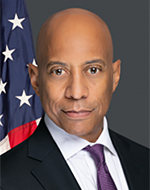
Dr. Reggie Brothers
Chief Executive Officer BigBear.ai
View Dr. Reggie Brothers's Biorgraphy
Dr. Reggie Brothers is an Operating Partner with AE Industrial Partners, a private equity and venture capital investment firm specializing in aerospace, defense & government services, space, power & utility services, and specialty industrial markets. Prior to this role he was the CEO of BigBear.ai, which brings together leading-edge data management, analytics, artificial intelligence, cloud technologies and computer network operations to deliver advanced decision support solutions to government and business leaders. He led the company through five acquisitions and listing on the NYSE. He served as Executive Vice President and Chief Technology Officer of Peraton and as a Principal with The Chertoff Group. Prior to that, he served as Under Secretary for Science and Technology at the U.S. Department of Homeland Security. Senate confirmed on April 8, 2014, he was responsible for a science and technology portfolio that included basic and applied research, development, demonstration, testing and evaluation with the purpose of helping DHS operational elements and the nation’s first responders achieve their mission objectives.
From 2011 to 2014, Dr. Brothers served as Deputy Assistant Secretary of Defense for Research at the Department of Defense. In this position, he was responsible for policy and oversight of the Department’s science and technology programs and laboratories. He has also held senior roles at the Defense Advanced Research Projects Agency, BAE Systems, Draper Laboratory and MIT Lincoln Laboratory. Dr. Brothers received a B.S. in Electrical Engineering from Tufts University, an M.S. in Electrical Engineering from Southern Methodist University and a Ph.D. in Electrical Engineering and Computer Science from the Massachusetts Institute of Technology. He has five patents, is a member of the Department of the Air Force Science Advisory Board, a member of the NASA Independent Study Team on Unidentified Aerial Phenomena (UAP), a Distinguished Fellow at Georgetown’s Center for Security and Emerging Technology (CSET). Dr. Brothers serves on the Boards of Redwire Space, American Pacific and Riverside Research.
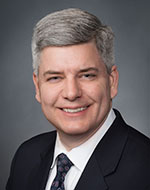
Daniel G. Rice
Vice President, 5G.MIL® Programs, Lockheed Martin
View Daniel G. Rice's Biography
Dan Rice is Vice President of 5G.MIL Programs for Lockheed Martin, reporting to the corporation’s Chief Engineer and Senior Vice President, Engineering & Technology. Dan leads the strategy and execution of the corporate programs for 5G and advanced communication technology solutions. He is responsible for corporate IR&D including development, demonstration, and integration across all of Lockheed Martin’s business areas. He is also responsible for development and management of strategic relationships. Previously, Dan Rice served as the Vice President of Technology Strategy and Research for Lockheed Martin, reporting to the corporation’s Chief Technology Officer. In this role, Dan led the integration and execution of the corporate technology strategy including technical intelligence, global science & technology research projects and development of the cross-corporation advanced R&D laboratory enterprise. A graduate from Rochester Institute of Technology with a BS in Computer Engineering, Dan also earned an MS in Electrical Engineering from Syracuse University and an MBA from the Kellogg School of Management at Northwestern University. Dan is a member of Tau Beta Pi and Eta Kappa Nu engineering societies. He has been granted four US Patents and is a Lockheed Martin Certified Program Manager.

Dr. Denis Donohue
President of Surveillance & Network Systems, Raytheon Intelligence & Space
View Dr. Denis Donohue's Biography
Dr. Denis Donohue is president of Surveillance & Network Systems within Raytheon Intelligence & Space, a business of Raytheon Technologies. Surveillance & Network Systems brings together advanced surveillance capabilities in both electro-optical/infrared and radio frequency with the ability to securely and reliably communicate timely information in the most austere environments.
Previously, Donohue led the Communications & Airspace Management Systems organization, which included protected satellite communications, cryptographic solutions, airborne mission computers, secure data links, identification friend or foe systems and air traffic systems. Before that, he led the Integrated Communication Systems organization at Raytheon Company’s Space and Airborne Systems business prior to Raytheon Company’s merger with United Technologies Corporation in 2020.
Donohue was also previously vice president of Space and Airborne Systems’ Intelligence, Surveillance and Reconnaissance Systems mission area. He served as senior director for the Surveillance and Targeting Systems product area and as director of naval surface radar programs at Raytheon Company’s Integrated Defense Systems business, along with numerous program and product management roles on radars and electro-optical/infrared sensor systems. Prior to joining Raytheon, Donohue was a researcher at the Johns Hopkins University Applied Physics Laboratory, where he was a principal staff scientist working on naval and missile defense radars and basic research and development.
Donohue earned a bachelor’s degree in computer science from Rutgers University, a master’s degree in electrical engineering from Stanford University and a doctorate in electrical engineering and applied physics from Stanford University.
Abstract: A tactical network will be more than the usual transport but participate in the acquisition, discovery and delivery of relevant data to users in a timely fashion. It is made up of the communication media: satcom, fiber and wireless, plus computing and storage services in an integrated system. New threats have developed in the past decade and continue to evolve rapidly. This panel will address the viability of the current tactical network and what R&D need to focus on to meet future threats in an affordable fashion. Topics within considerations are:
- Physical and electronic threats to Defense and commercial satcom and possible mitigation techniques including diversity using commercial assets
- Development of a viable defense wireless network for tactical operations
- The use of AI in tactical networks: gains and new vulnerabilities to be addressed
- Security and resilience of networks
- R&D path forward 6. Realistic budget-constrained procurement path towards an affordable secure and resilient tactical network
VIP Panel 2: Enabling Joint All Domain Command & Control
Date: Wednesday, November 30
Time: 10:00 - 11:00
Room: Grand Ballroom D & E/Main Level
Moderator:

Mr. Len Schiavone
Senior Technical Advisor, Raytheon Intelligence & Space
Panelists:
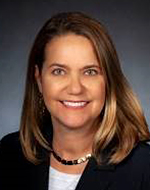 Ms. Laurel Gutierrez
Ms. Laurel Gutierrez
Senior Director, Command & Control Systems Capability @ Boeing Defense, Space & Security
View Laurel Gutierrez's Biography
Laurel Gutierrez is the senior director of the Command & Control Systems Capability for Boeing Defense Space & Security (BDS). In this role, Gutierrez is responsible for working across BDS to define and develop ground engineering capabilities, including driving strategy, reuse, integration and development of a skilled ground engineering workforce. In addition, Laurel also serves as the Boeing executive level functional partner to Wisk in the area of Remote Supervision Systems, supporting Wisk Flight Operations Center (FOC) trades, defining bi-directional strategy, and working to identify reuse opportunities and resources.
Prior to joining Boeing in 2020, Gutierrez was program area chief engineer for civil, commercial and international space systems at Raytheon, where she attained the rank of senior engineering fellow and certified architect.
Gutierrez brings more than 30 years of experience in systems architecture and engineering, design, development, and operations of defense and commercial C2, space and airborne systems. She has held numerous technical leadership roles, including chief engineer for airborne and space-based radar, electro-optical and GPS programs, lead systems architect, and IPT lead. Her ground segment experience includes SBIRS Low mission management, GPS OCX enterprise integration, operations of geosynchronous communication satellites, mission data processing for imaging and infrared tracking systems, and satellite and payload mission simulation systems.
Gutierrez holds a Bachelor of Science degree in Applied Mathematics from the University of California, Los Angeles, and a Master of Science degree in Systems Architecting and Engineering from the University of Southern California.
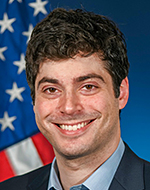
Greg Kuperman
Program Manager, DARPA Strategic Technology Office
View Greg Kuperman's Biography
Dr. Greg Kuperman joined DARPA in October 2020 as a program manager in the Strategic Technology Office. His research interests include proliferated space, secure systems, and distributed edge computing.
Prior to DARPA, Kuperman was chief architect of the Multi-Domain Integrated Combat Systems Division at the Air Force Rapid Capabilities Office. Before that, he was at MIT Lincoln Laboratory as a technical staff member in the Tactical Networking Group. Kuperman earned a bachelor's degree in computer and telecommunications engineering from the University of Pennsylvania, a master's degree in electrical engineering from the University of Pennsylvania, and a doctorate in aeronautics and astronautics from the Massachusetts Institute of Technology.
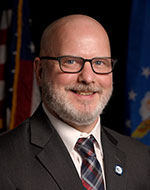 Mr. Tim Ryan
Mr. Tim Ryan
Senior Resident Fellow for Spacepower Studies, Mitchell Institute
View Tim Ryan's Biography
Tim is a retired United States Air Force Lieutenant Colonel and a Command Space Operator with expertise in Missile Warning, NRO, SATCOM and ICBM operations. Prior to joining Mitchell, Tim served as the Associate Director for Joint and National Security Council Matters on the Headquarters United Space Force staff. Prior to that, Tim served in numerous space, National Reconnaissance Office, National Security Agency, Headquarters Air Force Space Command and Chairman of the Joint Chiefs of Staff positions. He also deployed as a member of the USCENTCOM Director of Space Forces staff.
 Col Cecilia Watkins
Col Cecilia Watkins
Military Lead, Integrated Network Systems of Systems, OUSD (R&E)
View Col Celia Watkins' Biography
Col Cecilia Watkins is the Military Lead for Integrated Network Systems of Systems in the Office of the Under Secretary of Defense for Research and Engineering, Pentagon, D.C. She has served as a developmental engineer, international affairs specialist, and program manager in a variety of assignments involving space launch, flight test, distributed mission operations, IT, and foreign military sales/defense cooperation. Prior to her current assignment, Col Watkins was a student at the National Defense University College of Information and Cyberspace, Ft. Lesley J. McNair, D.C.
Abstract:
Joint All-Domain Command & Control (JADC2) is an expansive cross-DoD campaign intended to ensure the warfighter has access to tactically relevant information to support timely decision making through all phases of conflict. A variety of initiatives are underway to realize the JADC2 vision from experimentation with emerging commercial products or services to targeted R&D to develop and mature necessary technologies. The panel will explore the balance between reliance commercially developed technology and the DoD investment to develop unique technology to meet the demands of the warfighter’s environment. Some points to consider include
- Promising commercial technologies to leverage for JADC2
- Technology gaps requiring focused DOD R&D
- Value of warfighting experiments to assess technology utility
- CONOPS or policy changes needed to accelerate adoption of JADC2 enabling technology
- Accelerating TRL maturation through the acquisition and fielding process
Each speaker will give a 5-10-minute opening address with Q&A for the entire panel afterwards.
VIP Panel 3: Communications Interoperability for Coalition Operations
Date: Thursday, December 1
Time: 10:00 - 11:00
Room: Grand Ballroom D & E/Main Level
Moderator:

Robert Bartholet
Supervisor of the Johns Hopkins University Applied Physics Laboratory’s (APL) Communications Systems Branch
View Robert Bartholet's Biography
Robert (Rob) Bartholet is the supervisor of the Johns Hopkins University Applied Physics Laboratory’s (APL) Communications Systems Branch, which focuses on transforming the communications capabilities of APL's government sponsors to provide a decisive advantage in their critical missions. Bartholet joined APL as a communications systems engineer, serving in roles ranging from technical contributor, project manager, and organizational leader. Prior to joining the Laboratory, Bartholet completed 28 years of active duty in the U.S. Army, commanding three field artillery units before transitioning into the Signal Corps. He spearheaded the Army's efforts to build battlefield digital communications networks for tactical ground and air maneuver units, served as an assistant professor at the U.S. Military Academy at West Point, and is a plank owner of the Defense Information Systems Agency Command Center. Bartholet has a B.S. in electrical engineering from the U.S. Military Academy, an M.S. in computer science from the University of Virginia and an M.S. in strategic studies from the U.S. Army War College.
Panelists:

Welton Chase
US Public Sector (USPS) Federal Customer Success Leader at Cisco Systems
View Welton Chase's Biography
Welton Chase, Jr. is a retired General Officer, combat veteran and board director who currently serves as the US Public Sector (USPS) Federal Customer Success Leader at Cisco Systems, an Americanbased multinational digital communications technology conglomerate corporation headquarters In San Jose, California. He holds advanced degrees in Telecommunications, National Resource Strategy and an holds an undergraduate degree in Electrical Engineering. He is a 2016 Federal Top 100 Information Technology Award Recipient, has served on the FirstNet Board of Directors, and volunteers to support multiple organizations within his local community.
During his career in the Army, he commanded units at every level culminating his service as the Commanding General, 7th Signal Command (Theater) where he led the Army’s largest theater signal unit under Army Cyber Command providing secure reliable communications for over 400,000 throughout the western hemisphere. In 2014, he led US EUCOM’s C4/Cyber Directorate and was responsible for all C4/Cyber operations across 53 countries supporting over 100,000 forces. From 2011 to 2014, he was assigned to the Pentagon where he worked on the Joint Staff as a Division Chief in the J8 & J6. He also served as an Executive Assistant in the Chairman’s Office for the Assistant to the Chairman where he worked closely with the Department of State. From 2008 to 2011, he served in Korea as the executive officer to the Commander United Nations Command/Combined Forces Command/U.S. Forces Command-Korea (UNC/CFC/USFK) and as the commander of the 1st Signal Brigade Yongsan, Korea. As the 1st Signal Brigade Commander, he was responsible for communications across the Korean peninsula. Prior to his assignment to Korea, he attended the Nation Defense University’s Industrial College of the Armed Forces and was a Battalion Commander of the 101st Airborne Division’s Special Troops Battalion where he led the unit on its first combat deployment to Tikrit, Iraq in 2005 during OIF IV. He also commanded the 501st Signal Battalion, 101st Airborne Division (Air Assault) in Mosul, Iraq, during Operation Iraq Freedom (OIF1) in 2003. From 2001 to 2003 he was assigned to US Strategic Command, Offutt AFB, where he worked in the J3 and subsequently served as the Aide-de-Camp to the STRATCOM Commander. From 1998 to 2001, he was assigned to the 4th Infantry Division (Mechanized) at Fort Hood, Texas where he participated in Advanced Warfighter Experiments as part of Task Force XXI. Prior to 1998, he served in a variety of signal and space operations positions including commanding an Airborne Company at Fort Bragg, North Carolina.
His awards and decorations include: Distinguished Service Medal; Defense Superior Service Medal with two Oak Leaf Clusters; Legion of Merit; Bronze Star Medal with two Oak Leaf Clusters; Defense Meritorious Service Medal; Meritorious Service Medal with three Oak Leaf Clusters; the Army Commendation Medal; and a variety of unit and campaign awards. He is a Master Parachutist, Ranger and Air Assault Qualified.
He holds a Master of Science degree in telecommunications from the University of Colorado-Boulder; a Master of Science degree in national resource strategy from the National Defense University; and a Bachelor of Science degree in electrical engineering from Widener University Chester, Pennsylvania.
He also serves as the Chairman of the Board to the Fort Gordon Historical Museum Society and is a former Board Member of FIRSTNET and The Flag and General Officer’s Network (TFGON). He currently serves as a Board Advisor, Wireless Security Institute Idaho National Laboratory, Board Advisor, The Cyber Security Forum Initiative (CSFI); and as a Council Member, Skyworx Innovation Xchange. He is a Member, National Association of Corporate Directors; Life Member, Association of the United States Army (AUSA); Life Member, 101st Airborne Division (Air Assault) Association, Life Member, Military Officers Association of America (MOAA), Life Member, Veterans of Foreign Wars, Commander & Life Member, Military Order of World Wars (MOWW); Member, American Legion; Life Member, Signal Corps Regimental Association (SCRA), Life Member, 1st Signal Brigade Association, Member Armed Forces Communications Electronics Association (AFCEA). He Is also the Chairman for the Ministry to the Armed Forces Committee (MAFC), Lutheran Church - Missouri Synod, President of the Church Council at Our Redeemer Lutheran Church and a past President of the Augusta West Rotary Club. He is also an aviation enthusiast, UAS operator and licensed private pilot.
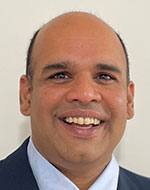
Dr. Venkatesh Ramaswamy
Chief Technologist, MITRE Labs
View Venkatesh Ramaswamy's Biography
Dr. Venkatesh Ramaswamy is Chief Technologist at MITRE Labs in Bedford, Massachusetts where he currently leads technical innovation and R&D activities in 5G/xG technologies. He has more than 20 years of experience in the telecommunications industry and has held technical leadership positions at top technology companies, startups, and research labs. He has published more than 50 peer-reviewed publications and patents, served as a TPC member for various conferences, and participated in several technical panels. He received his PhD in Electrical Engineering from the University of Mississippi.
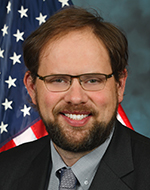
Bryon Doyle
Technical Director, Defense Information Systems Agency, Transport Services directorate
View Bryon Doyle's Biography
Bryon Doyle is the technical director for the Defense Information Systems Agency, Transport Services directorate located at Fort Meade, Maryland. He is responsible for providing technical leadership to global Department of Defense communications infrastructure, including the Department of Defense Information Network. He leads the technical execution for satellite communications, gateways, optical, terrestrial/undersea transport and multiple DoD networks. From 2008 to 2019, Mr. Doyle was a senior engineer at the Naval Information Warfare Center Atlantic, formerly known as Space and Naval Warfare Systems Center Atlantic, in Charleston, South Carolina. At NIWC Atlantic he supported multiple communications programs sponsored by organizations such as the Defense Intelligence Agency, DISA, Department of Defense – Chief Information Officer, Naval Intelligence Activity and the Office of Naval Intelligence.
Abstract:
Military success in coalition operations can be either positively enhanced or directly challenged by the underlying communications capabilities of the partner organizations. While the Joint All-Domain Command & Control (JADC2) campaign is addressing the challenges inherent in communications interoperability across the US joint force, extending the JADC2 concepts and initiatives into coalition operations brings with it a host of additional challenges. First and foremost, there are several standing alliances, each with different sets of partners bringing their own capabilities to the partnership. Coalitions are ephemeral, stood up and down as necessary, with different sets of communications requirements for each coalition instance. The panel will explore the tradeoffs in communications interoperability for coalition operations. Some points to consider include:
- The tendency to bypass security as capabilities are glued together quickly
- The role of industry and government in driving the adoption of common standards across multi-national boundaries
- Promising commercial technologies for coalition communication interoperability
- Research gaps for multinational communication technology interoperability
Each speaker will give a 5-10-minute opening address with Q&A for the entire panel afterwards.



























